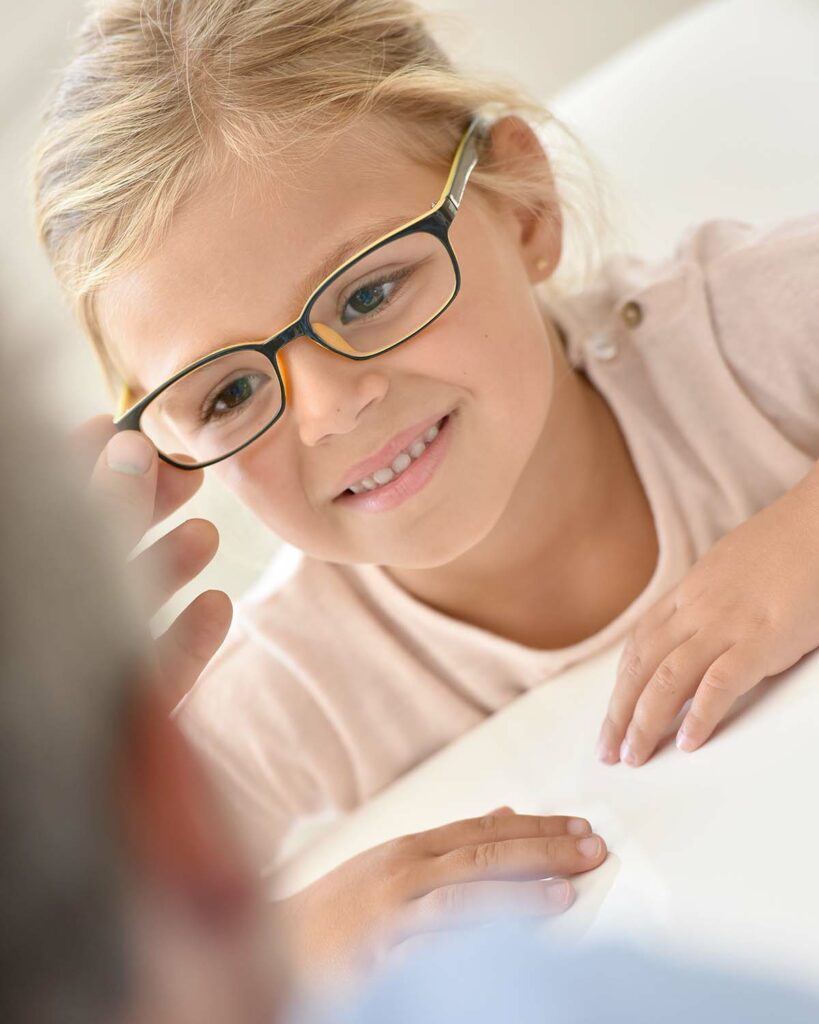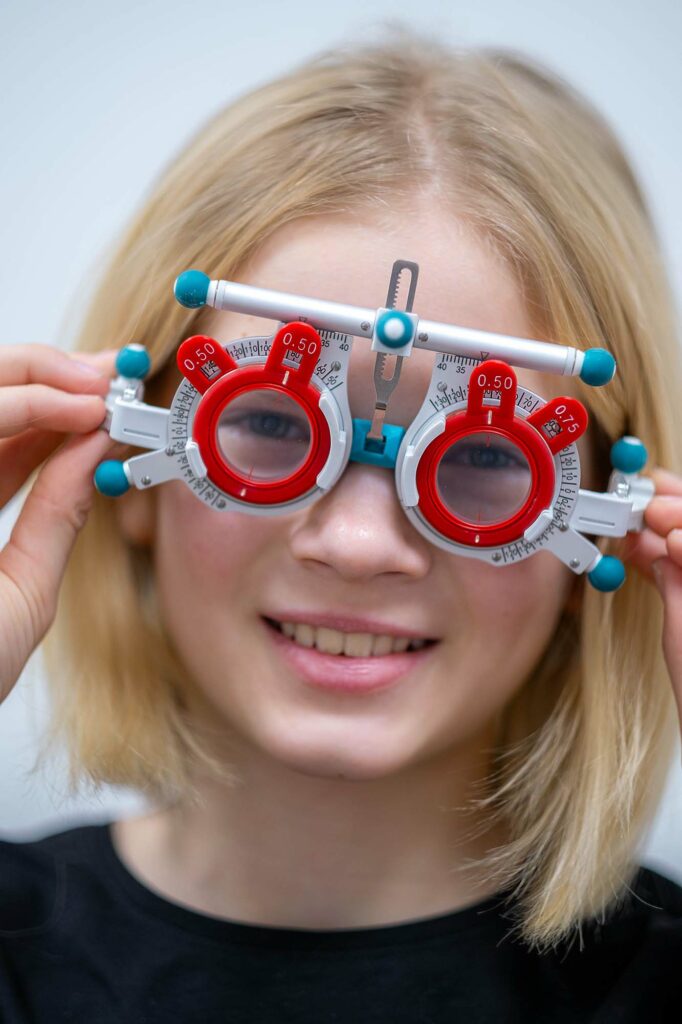
What is Myopia?
Myopia or nearsightedness means your vision close up is clear but far away is blurry. Myopia will likely continue to increase until approximately 21 to 23 years of age. As this occurs, children’s vision will likely get significantly worse every six months to a year. We specialize in myopia management to help slow the progression of nearsightedness and reduce the risks associated with high myopia
Therapies for Myopia Control
There are currently four therapies for slowing down myopia or nearsightedness progression. Here are a few examples of our approach to treat myopia.
Orthokeratology (Ortho-K)
Orthokeratology is the use of specially designed and fitted retainer contact lenses that are worn overnight to gently reshape the cornea. In the morning the lenses are removed enabling clear vision without daytime contact lenses or glasses. The special design has the added benefit of slowing down the progression of myopia.
Atropine Eydrops
Atropine Eye Drops are low dose prescription medication which is administered at bedtime. Atropine drops are approved by regulatory authorities such as the FDA but not for myopia control indication.
Myopia Spectacles
Myopia Spectacles are uniquely designed eyeglass lenses which are worn during the day. These nearsightedness eyeglass lenses have demonstrated efficacy in slowing down myopia progression. Spectacles for myopia are not yet available in all countries. Seattle, WA is one place that you can find myopia glasses. These spectacles for myopia have shown efficacy in controlling myopia.
Daytime Myopia Management Lenses
Specialty dual focus contact lenses like MiSight and other such lenses are contact lenses that are worn during the daytime only and are designed to create dual focus zones. These lenses come in a variety of designs which are FDA approved for daytime wear. Only some of these lenses carry a FDA approval for myopia control.
Clearly Satisfied Customers
My son has been Dr. Gill’s Ortho-K patient for about 3 years and we couldn’t be happier. His knowledge and experience in Ortho-K treatment are evident from the very first consultation.
My now 15 year old has been doing orthokeratology with Dr. Gill for 2 years now. Dr. Gill is so great that we followed him from his old practice to this new one.
Dr Gill is very professional and knowledgeable, highly recommend!
My son has been with Dr. Gill for quite a few years, he is super nice, very knowledgeable and really experienced. He also truly cares about patient, lucky to have him as our eye doctor and help with Ortho-K lens.

Myopia Treatment In Seattle, WA
These spectacles foFor individuals with severe nearsightedness, finding an effective high myopia treatment is crucial.
High myopia is scientifically proven to be associated with an increased risk of developing sight threatening eye diseases later in life such as:
- Cataracts
- Glaucoma
- Macular Degeneration
- Retinal Detachment
FAQs
What are atropine eye drops and how do they manage myopia?
Atropine eye drops are a form of medication used to slow the progression of myopia in children. They are believed to work by temporarily relaxing the eye’s focusing mechanism, reducing the stress and fatigue that contribute to myopia progression.
Are atropine eye drops safe for children?
Yes, when used under the guidance of an eye doctor, low-dose atropine eye drops have been found to be safe for children, with minimal side effects such as light sensitivity or difficulty focusing on close objects.
What are MiSight 1 day contact lenses?
MiSight 1 day contact lenses are soft, daily disposable contact lenses specifically designed for children to slow the progression of myopia. They not only correct existing myopia, allowing clear distance vision, but also aim to control its progression through a specific optical design.
How do MiSight 1 day contact lenses work?
MiSight lenses have a unique design that creates a specific visual effect intended to reduce the stimulus for myopia progression. This design focuses light in a way that sends a signal to the eye to reduce the elongation that leads to myopia worsening.
What are the advantages of using MiSight 1 day contact lenses over traditional contact lenses?
The main advantage is their ability to not only correct nearsightedness but also to slow the progression of myopia in children. Additionally, being daily disposables, they are convenient and have a lower risk of infection compared to lenses that require cleaning and disinfection.
Can atropine eye drops and Ortho-K retainer lenses be used together?
Yes, in some cases, nearsightedness eye doctor’s may recommend a combination of treatments to manage myopia more effectively. This should be done under careful supervision and guidance.
How do I know which myopia management option is best for my child?
The best approach depends on various factors, including the child’s age, lifestyle, the severity of myopia, and how quickly it’s progressing. An Myopia eye doctor in Seattle can evaluate these factors and recommend the most suitable treatment plan.
Why are children good candidates?
Studies from around the world have indicated that Ortho-K can keep your children’s nearsightedness from getting worse. Currently, an ongoing 5 year FDA study is seeking to confirm previous studies and prove anecdotal evidence to this fact. Increasing nearsightedness is also a risk factor for detached retina and glaucoma.
Your child is an especially good candidate if they have a tendency to lose or abuse their contact lenses/glasses, or if wearing them interferes with their active life.
Is age a factor?
And, there is no upper limit on age either.